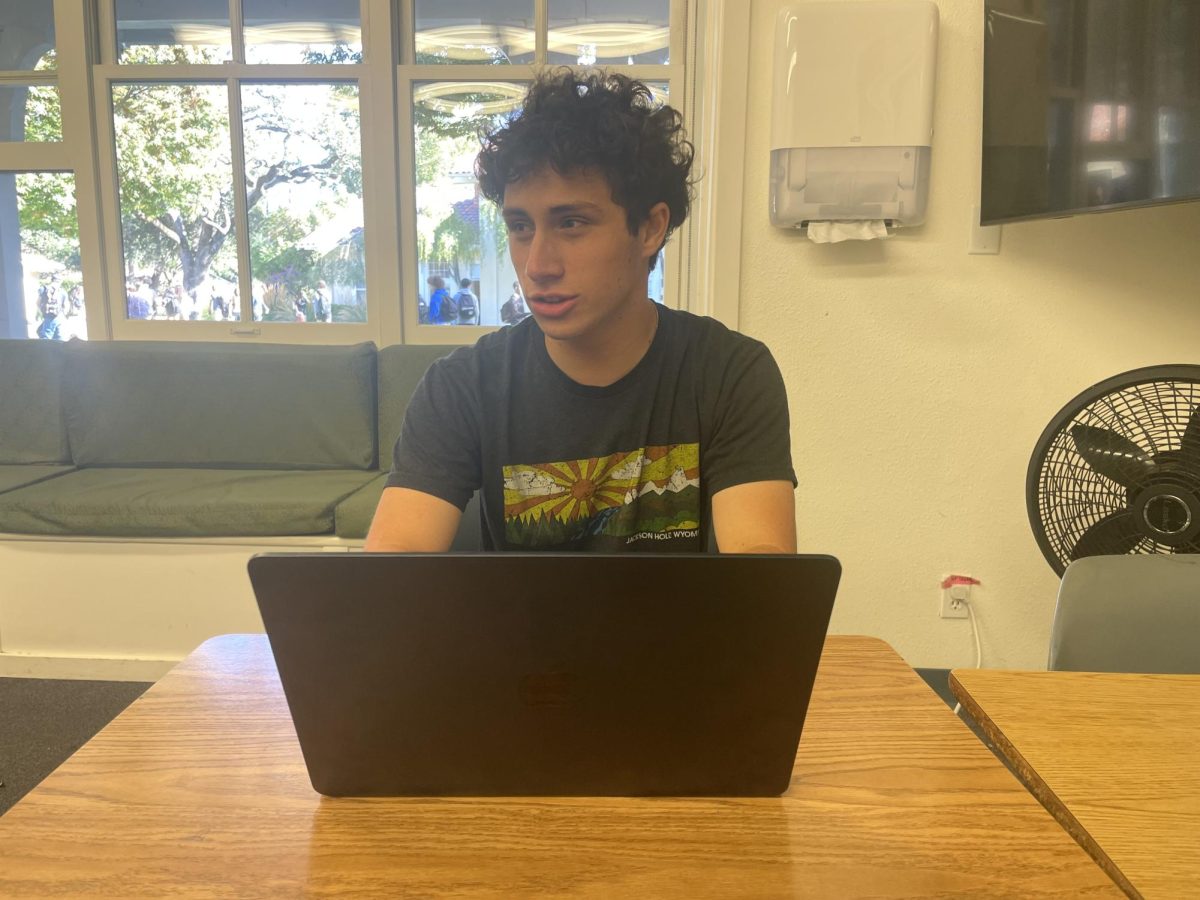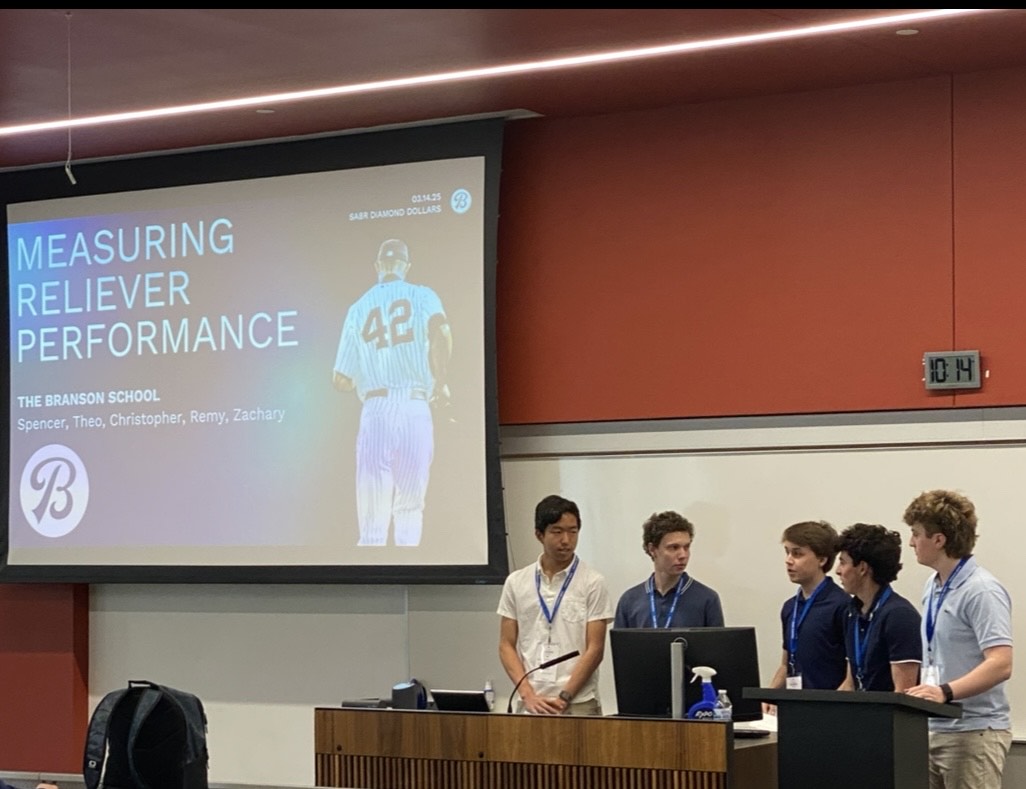Henry Lien ‘24 is leading the initiative to reshape the use of artificial intelligence in the classroom and the larger Branson community.
Lien began an independent study this fall on the topic of AI usage within the Branson community. AI, particularly ChatGPT, has already left its mark on Branson, with numerous Community Honor Board cases involving students using the tool to cheat. In the wake of the enormous growth of AI, teachers and now students are seeking ways to address and adapt to the issue.
“There are so many ways that AI tools can be used in educational spaces for the benefit of student learning. And that’s my goal is to explore these options, introduce them to faculty and see what sticks” Lien said.
Although Lien is a student, he is well suited for the endeavor because of his experience with education. Lien over the past five years has run his own non-profit educational organization called ChessPals, which focuses on giving children free access to a chess education.
“As someone who works not only as a teacher, and as an educator, but also someone with a lot of experience with AI and with technology, I have a unique perspective on the new developments in AI,” Lien said. “So, although I’m not a professional teacher, I think that my point of view could be beneficial.”
Lien’s journey into both the worlds of AI and education began with a keen interest in the potential of AI to reshape the learning landscape.
“My goal is to create a balanced policy for each subject that encourages ethical AI use while preventing academic dishonesty,” Lien said.
One of the core challenges Lien and Branson’s teachers are aiming to address is the need for balance. AI chatbots, such as ChatGPT, offer a plethora of opportunities to potentially enhance education. These tools can assist in generating practice questions and explanations, and can even aid in creative writing. However, they can also inadvertently promote academic dishonesty if not carefully managed.
“We must strike a balance,” Lien said. “It’s about crafting policies that allow teachers to encourage ethical AI use while also steering clear of misuse.”
This balance requires a nuanced approach where educators can utilize AI as an aid for learning rather than a shortcut for academic success.
Lien’s study holds great potential for the Branson community.
As AI continues to expand throughout education, having a student’s perspective “is going to be something that’s super important,” said math teacher Drew Mathieson, who joined the Branson faculty last school year.
This sentiment is echoed by many who are trying to adapt to the use of AI at Branson, among them Jeff Symonds, english teacher and director of studies.
“I was thrilled that a student wanted to wade into it — not from a ‘what are we allowed and not allowed to do? Or what’s going to get me in trouble? He’s really genuinely interested in [whether] this is something that can make the Branson education better?” Symonds said. “Getting his perspective and getting students’ perspective on the advantages and disadvantages of the technology is a crucial voice in the larger conversation that the school needs to have.”
Lien’s approach to this independent study is comprehensive and meticulous. He has decided to approach it with a department-by-department analysis, in which he will dedicate specific months to each department, such as English and History. This will enable him to tailor AI policies to suit the unique needs and challenges of each subject with the new technology. The math department serves as an example of how AI doesn’t affect every subject equally.
“I think the math department itself is pretty insulated against the threat of AI,” Mathieson said. “Traditionally, assessments for math classes have been in-person tests and quizzes, so that has not necessarily been affected by ChatGPT.”
But although the math department hasn’t felt much of the impact from AI, the same cannot be said of all subjects. The english department and its teachers have undergone a significant shift in their approach to writing assessments.
“All of the writing that my students have done so far this year has been in class, by hand,” said Symonds. “It’s been great. I think I’m amazed at what they’re able to do in 15 to 20 minutes, and I think they’re amazed.”
In order to gauge the needs of each specific department, Lien will use a combination of teacher interviews, technological exploration, and consultations with experts outside the Branson community. By combining these insights, Lien is working towards a set of guidelines that will help teachers and students effectively navigate the AI landscape.
As AI technology continues to evolve, it is important that educational institutions adapt to harness its benefits while safeguarding against its pitfalls. Lien’s independent study is a commendable step in this direction.
Recently, he and a team of fellow Branson students have been working on a program that could assist teachers with grading.
“We are working on an AI system that will essentially be able to grade math tests and quizzes for teachers,” Lien said. “Our aim is to have it go, here’s the question, here’s the prompt, here’s step one, step two, step three, step four. Then, after that, it will be able to grade you, give partial credit, ultimately giving you a total score with feedback”
This student-led initiative to redefine something as significant as the growth of AI has students curious about what is to come.
“I’m really excited about the future of AI in education,” Lien said.






